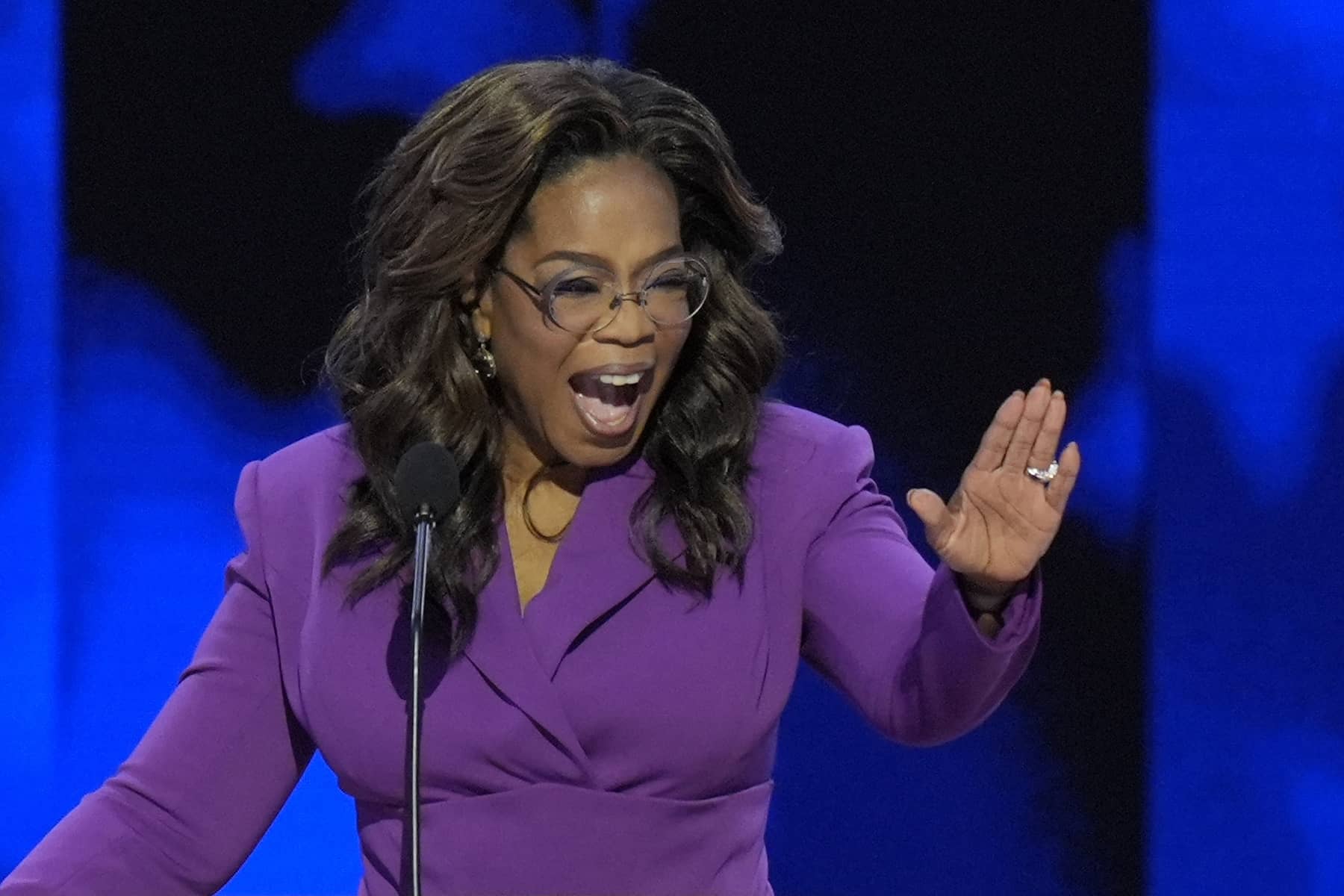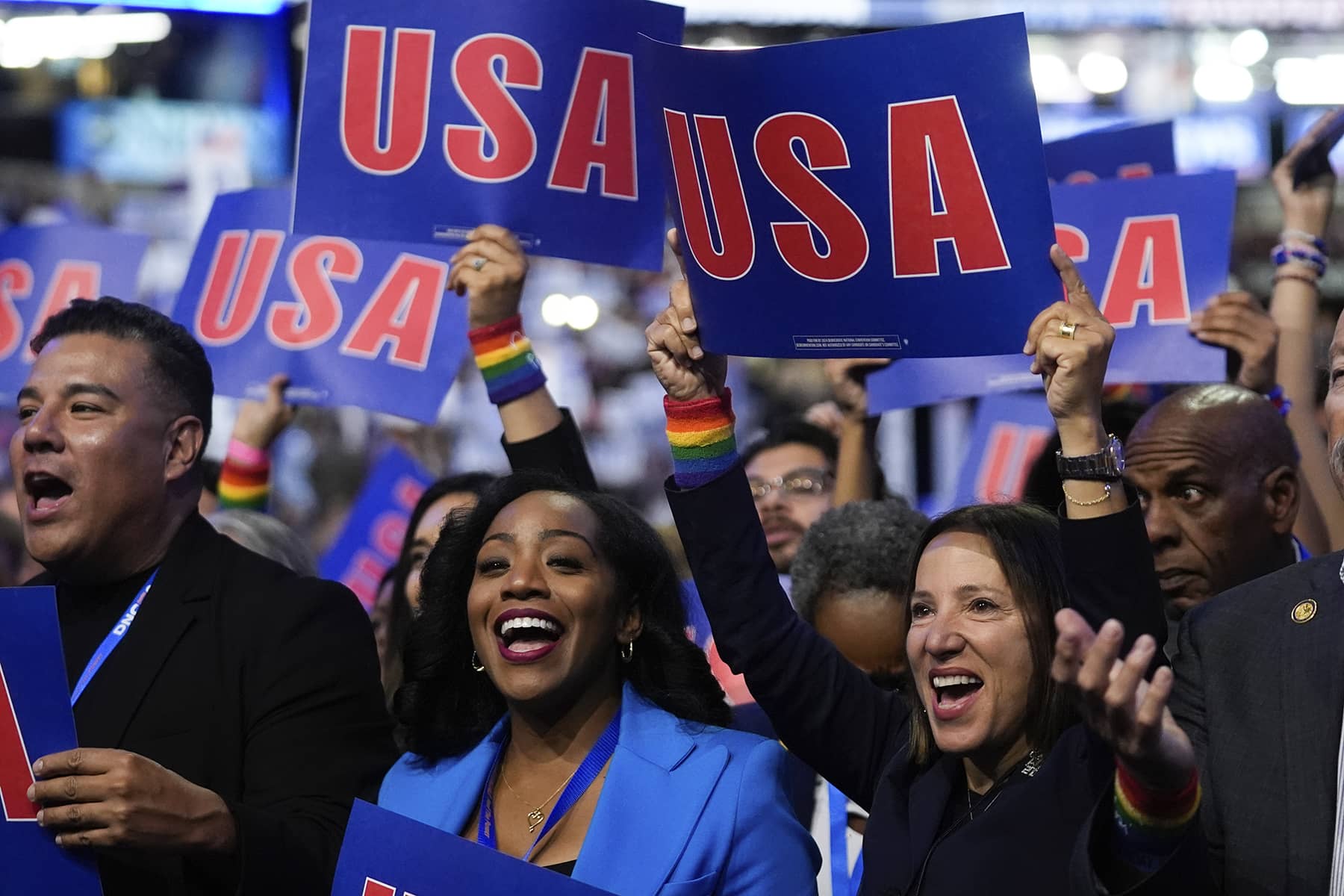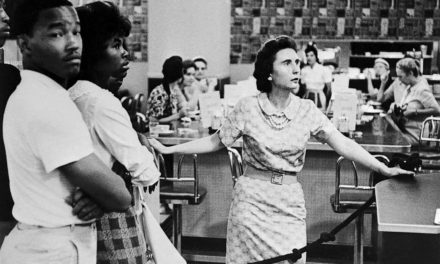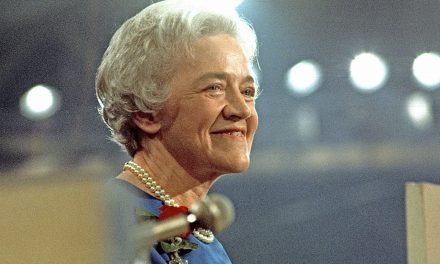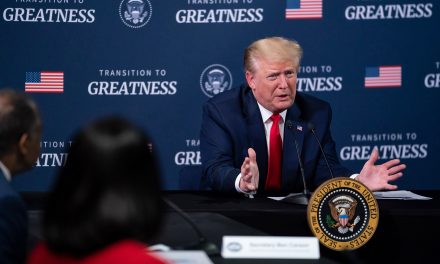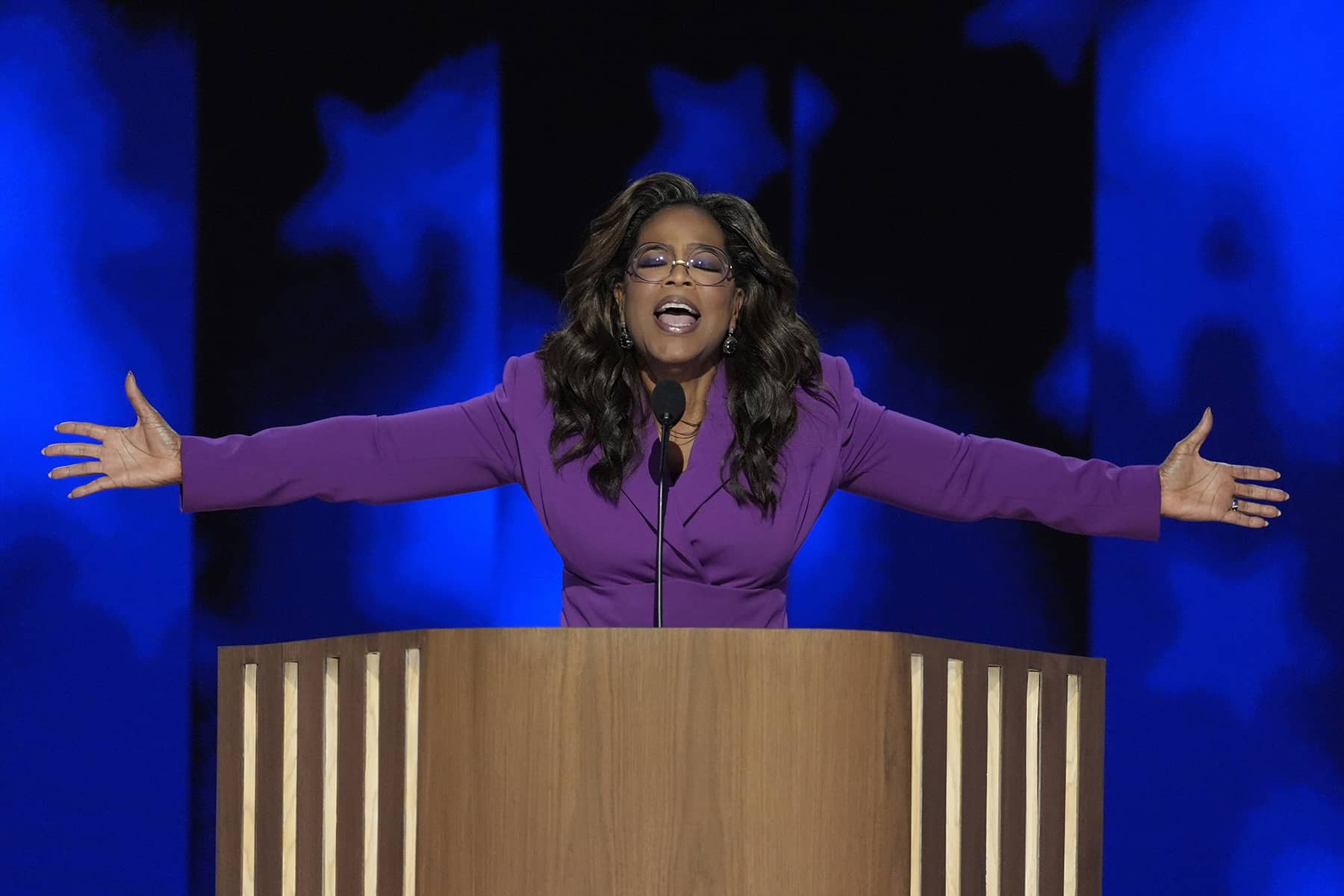
The theme of the third day of the Democratic National Convention, held in the United Center in Chicago, Illinois, was “A Fight for Our Freedoms.” But the speeches were less about fighting than they were about recovering the roots of American democracy.
In 1974, music writer Jon Landau saw a relatively unknown musician in Cambridge, Massachusetts, and wrote for an alternative paper: “Last Thursday, at the Harvard Square theater, I saw rock’n’roll past flash before my eyes.
And I saw something else: I saw rock and roll future and its name is Bruce Springsteen. And on a night when I needed to feel young, he made me feel like I was hearing music for the very first time.” The review helped to catapult Springsteen to stardom.
After three days at the Democratic National Convention in Chicago, Illinois, I feel like I have seen the political future and its name is the Democratic Party. But rather than feeling like I’m hearing politics for the first time, I am hearing the echo of political themes embraced in the best moments of America’s past.
The Democrats have not lost their conviction that the reelection of Donald Trump and the enactment of Project 2025 are an existential threat both to democracy and to Americans themselves. Speakers throughout the convention have condemned Trump and highlighted Project 2025, a blueprint written by the Heritage Foundation and other right-wing organizations for a second Trump term.
Although Trump has tried to distance himself from Project 2025, Democratic vice presidential nominee Minnesota governor Tim Walz, who was a high school football coach, notes that no one bothers to write a playbook if they’re not going to use it.
Comedian and actor Kenan Thompson illustrated the dangers of Project 2025 with humor, bringing home the horror of it as only humor can do. With a giant copy of the plan as a prop, he gave a woman married for eight years to her wife the bad news that Project 2025 would end protections for LGBTQ+ Americans, informed a woman who pays $35 a month for her insulin that the plan would overturn the law that makes drugs more affordable, notified an OBGYN that the plan would ban abortion nationwide and throw abortion providers into jail, and put a woman who called herself a proud civil servant on notice that Project 2025 would guarantee she would be fired unless she is a MAGA loyalist.
But the dark dangers of the assault of Trump and the MAGA Republicans on the country have finally pushed the party to move away from its customary caution and focus on policy to embrace the possibilities of a new future. The convention is electric, packed with young people who push jokey memes and poke fun at themselves, much as Walz and presidential nominee Vice President Kamala Harris are doing to deflect criticism, and who are sharing homemade politically-themed friendship bracelets that echo the homemade paraphernalia of singer Taylor Swift’s Eras tour.
And, after decades in which Republicans claimed the mantle of patriotism, now that the fate of democracy itself is on the line, Democrats are joyfully claiming the symbols and the principles of American democracy for their own.
During the Vietnam War in the 1960s and early 1970s, many Democrats shied away from symbols of patriotism because they seemed to support imperialism. Then, in the 1980s, Reagan and his supporters wrapped themselves in the flag and claimed it for their own. That impulse to define “Americans” as those who vote for Republicans has led us to a place where a small minority claims the right to rule over the rest of us.
The Democratic National Convention has powerfully illustrated that the rest of us are finally reclaiming the country and its symbols. The convention has been full of references to the Declaration of Independence, the Constitution, the American Revolution, the national anthem, and the pledge of allegiance. Tonight, attendees chanting “USA” waved signs emblazoned with the letters.
Speakers, many of whom are military veterans, have testified that they are proud to be Americans. The theme of patriotism was even in one of tonight’s afterparties: Haitian-born rapper Wyclef Jean played The Star Spangled Banner with an interpretation that recalled Jimi Hendrix at Woodstock. “America is the best place to be,” he said. “I’m the best of the American dream. Welcome to America…. You know what makes America great? We’re a bunch of immigrants.”
As Jean indicated, that embrace of our history does not come with the exceptionalism of MAGA Republicans, who maintain that the U.S. has a perfect past that it must reclaim to become great again. Indeed, speakers have emphasized that honoring our history means remembering the nation’s failures as well as its triumphs.
The Democrats’ patriotism means recognizing that despite the fact that the U.S. has never fully realized the principles laid out in the Declaration of Independence, it has never abandoned them either—a statement paraphrased from President Joe Biden, who has said it repeatedly.
Speakers have highlighted that the imperfect version of those principles has enabled their personal success stories. Speaker after speaker, from Harris and Walz, of course, to tonight’s speakers Maryland governor Wes Moore, Transportation Secretary Pete Buttigieg, and journalist and television personality Oprah Winfrey, have recounted their own process of rising from humble beginnings to their current prominence.
Winfrey is an Independent who generally stays out of politics, but tonight she spoke passionately during prime time about electing Vice President Kamala Harris and Governor Walz. When a reporter asked her why she was willing to make a political statement, she said: “Because I really care about this country. And there couldn’t have been a life like mine, a career like mine, a success like mine, without a country like America. Only in America could there be a me.”
“America is an ongoing project that requires commitment and being open to the hard work and the hard work of democracy. Every now and then it requires standing up to life’s bullies … Despite what some would have you think, we are not so different from our neighbors. When a house is on fire, we don’t ask about the homeowner’s race or religion, we don’t wonder who their partner is or how they voted. No. We just try to do the best we can to save them. And if the place happens to belong to a childless cat lady, well, we try to get that cat out, too … Let us choose truth, let us choose honor, let us choose joy. Because that is the best of America. We are Americans. Let us choose loyalty to the Constitution over loyalty to any individual. Let us choose inclusion over retaliation. Common sense over nonsense. Because that’s the best of America.” – Oprah Winfrey
The many stories in which ordinary Americans rise from adversity through hard work, decency, and service to others implicitly conflates those individual struggles with the struggles of the United States itself. Running through the stories told at the convention is the theme of working hard through a time of darkness to come out into the light.
“Weeping may endure for a night, but joy comes in the morning,” speakers have quoted the Biblical psalm, and they have referred to the vision of the American flag still flying after a night of bombardment during the War of 1812, captured by Francis Scott Key in the national anthem, promising that after our time of national darkness, there will be light.
The DNC has called not just for reasserting patriotism, but for reclaiming America with joy. It has showcased a deep bench of politicians, some of whom are great orators, repeatedly calling for joy in the work of saving democracy, and it has shown poets like Amanda Gorman and a wide range of musicians, from Stevie Wonder to Lil Jon to D.J. Cassidy to John Legend.
The convention is designed to appeal to different generations—tonight actress Mindy Kaling helpfully explained to older attendees who she is—and younger attendees have handed out friendship bracelets saying things like “Madam Prez” to older people in an echo of the exchange of bracelets among Taylor Swift’s fans.
After an era in which politicians have seemed to lie to the American people, the convention has emphasized authenticity. It has featured testimonials about the candidates with speakers ranging from the candidates’ children and grandchildren, to extended family and, tonight, to members of the football team Walz coached.
There have been stories of Harris’s cooking and how Second Gentleman Doug Emhoff awkwardly called her for a date, and fond memories of Walz pulling a student out of a snowbank, hunting, and caring for his children. The convention has emphasized that the American government is made up of individuals and that the character of the people we put into leadership will determine what that government does.
Further, the Democrats have made their points with the stories of individual Americans who have overcome dark hours in order to move forward. In that storytelling, individuals represent the nation itself.
The message of joy as we protect democracy, backed as that message is with four years of extraordinary accomplishments that have bolstered the middle class and spread opportunity among poorer Americans, has taken off. The convention has heard from three Democratic presidents and a range of other speakers, including a number of Republicans who have turned against Trump and are backing Harris and Walz. In July, Harris raised four times the money Trump did: $204 million to $48 million, much of it from small donors.
The palpable energy and enthusiasm in Chicago, based as it is in a celebration of American values—especially in the idea of American freedom—reminds me of the enthusiasm of 1860 or 1932. It is about ending the darkness, not indulging in it, and it requires the hard work of everyone who believes that we deserve the freedom to determine our own lives.
After his acceptance speech, Walz walked off stage to a favorite song of his: Neil Young’s “Rockin‘ in the Free World.” Neil Young personally allowed the campaign to use the song. When the Trump campaign used it, Young sued to make them stop.
J. Scott Applewhite (AP) and Morry Gash (AP)
Letters from an Аmerican is a daily email newsletter written by Heather Cox Richardson, about the history behind today’s politics

